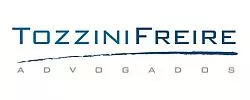The Federal Supreme Court (STF) decided the Extraordinary Appeal nr. 593849 (RE 593849-MG) ruling that companies obliged to the tax replacement system of ICMS (ICMS-ST), have the right of refund in relation to amounts paid in excess. According to the decision, the taxpayer is entitled to a refund of the ICMS paid in advance whenever the effective value at the end of the economic chain is lower than the deemed value stipulated by the legislation.
ICMS is a Brazilian State VAT type tax, paid by the seller of goods, energy and some services (telecommunication and transportation). Specifically when it comes to the sale of goods, the States created a system where they elect one taxpayer to pay the ICMS due in all the subsequent sales, normally the factory or the importer of goods – it is called tax replacement system (ICMS-ST in Portuguese).
This way, the factory or the importer pay the ICMS-ST and the State tax authorities need to audit only the factory or the importer, and not all the players of the distribution channels. In order to charge the ICMS-ST, the tax authorities "predict" the price of the goods to the end consumer (through market research and/or inputs of the players). In this case, the manufacturer or importer become liable for withholding and paying the ICMS levied on the subsequent transactions, that is, on the deemed triggering events.
A question that arises is whether the taxpayer are entitled to refund the ICMS-ST paid in excess when the tax authorities "predict" a price of goods to the end consumer (tax basis of the ICMS-ST) higher than the price that will actually the charged with those goods.
According to the law, the ICMS taxable basis should reflect the amount of the commercial transaction. For such, this amount shall be identified at the time of the tax-triggering event, that is, upon shipment of the goods, under any title, from the taxpayer's establishment.
In a nutshell, the legislation also provides that the ICMS-ST taxable basis shall be the sum of (i) the amount of the transaction carried out by the tax substitute with (ii) the added value margin (MVA) of the subsequent transactions and (iii) the ceiling price in case it is fixed by a competent public agency; or the end consumer price suggested by the manufacturer or importer. The MVA is generally foreseen by law and is based on market research.
This recent trial represents an important change in the understanding of the Supreme Court, because the STF has changed its previous understanding expressed on Direct Unconstitutionality Action (ADI) nr. 1851-AL. In that case, the Court had decided that the States have no obligation to refund the difference of overpaid ICMS, even if in the end, it is established that the deemed taxable basis turned out to be greater than the effective one.
By deciding the Extraordinary Appeal in October, the Supreme Court stated that the taxpayer is entitled to the difference between the value of the tax collected in advance and the amount actually due at the time of sale.
Hence, the decision reaches the cases in which the amount paid in advance is higher than the value that taxpayers should have originally paid. This can happen, for example, when the market suffers a decline and the profit margin of the participants of the distribution chain are lower than that calculated originally as the deemed basis.
The ICMS replacement system was created with the aim of avoiding tax evasion. It was a way to ensure that the ICMS was paid throughout the economic cycle of goods at a reasonable charge. The system also intended to level the unfair competition between tax evaders and those who diligently pay taxes.
In practice, though, it is common that the public administration establishes deemed margins larger than the real prices practiced. As a side effect, the ICMS-ST regime turns out to generate an increase on the price of products sold to end consumers.
Turning back to the Extraordinary Appeal, the plenary of the STF has established that the right of reimbursement also applies to the States. This means that the Tax Authorities may charge the unpaid ICMS if the taxpayer has collected in advance an amount lower than that observed after the triggering event.
Moreover, the reporting minister proposed that the decision shall apply only to lawsuits that are already in progress or to future cases. Hence, companies that ended up collecting ICMS in excess in the past shall no longer have the right of reimbursement if the final decision confirms this position.
The STF fixed the following thesis for the purpose of overall repercussions: "a refund of the difference of ICMS paid in excess on the tax replacement system is due if the basis for calculating the effective operation is lower than the deemed basis".
The content of this article is intended to provide a general guide to the subject matter. Specialist advice should be sought about your specific circumstances.
We operate a free-to-view policy, asking only that you register in order to read all of our content. Please login or register to view the rest of this article.


